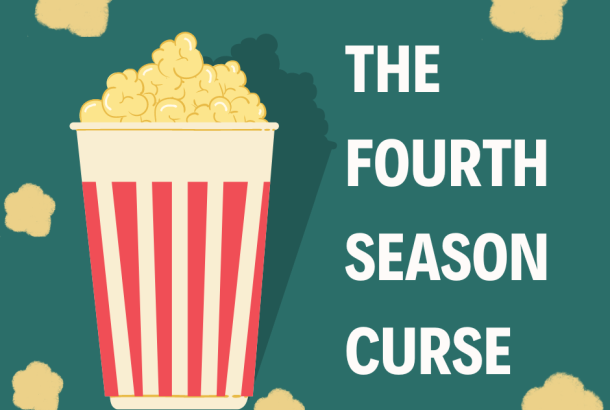Uncut film takes: The biggest Oscar snubs of the last 10 years
By evanmeikle

With the 96th Academy Awards this month, a long and exasperating history of Oscar snubs and oversights was once again brought to light. Especially with Oppenheimer and Poor Things collectively claiming 11 of the categories between them, despite 2024 being an especially standout year for indie and international film.
I do want to make it clear that I am not an absolute Hollywood snob, in fact, they have had a fantastic year. The gap left by the superhero monoliths of blockbusters that would have taken all other box office attention in previous years has seemingly been replaced with some interesting filmmaking. The mere presence of Yorgos Lanthimos and Christopher Nolan at the top of this year’s Oscars list is a testament to, potentially, a better future for Hollywood and the industry in general.
However, progress does not absolve the Academy of its sins, and a litany of snubs and bizarre winners clutters its record. The following are what I consider to be the worst of the last ten years.
2014: Jean-Marc Vallée for Best Director for Dallas Buyers Club
To begin with, what I thought was a pretty obvious one: Jean-Marc Vallée for best director for Dallas Buyers Club. In research for this article, I was stunned to find out that somehow, Alfonso Cuarón had won best director above Vallée for his uninspiring space slog Gravity (admittedly a film I was subjected to far more times than necessary in my secondary school music class; this may have slightly tinged my prejudice towards it).
In my opinion, to direct the winners of both Best Supporting Actor and Best Actor in what most consider a modern masterpiece of social realism, especially when one of those now iconic performances is by Jared Leto of all people, I think it’s pretty clear that you deserve Best Director.
2015: The Lego Movie for Best Animated Feature
The Lego Movie holds a very special place in my heart, and whilst I know that sentimentality isn’t quite enough to grab an Oscar, it does compel me to make a pitch as to why this film does.
The Lego Movie is in my humble estimation the best American animated film of the 2010s. It is hilarious to this day, both for adults and children alike, it captures the spirit of the creative process of Lego without succumbing to cheesy tropes or clichés. Its cast of characters from across Lego’s history and pop culture are collectively and independently endearing and engaging, (one even leading to a spin-off of his own in The Lego Batman Movie to similar acclaim) and it achieves a great feat in film history by incorporating Will Ferrell without making it completely unwatchable.
2016: Straight Outta Compton for Best Picture (nomination at least!)
2016 was the year defined by concerns around the Oscar’s absence of diversity and was just a year after not a single one of the 20 actors and actresses nominated were of colour. Therefore, when F. Gary Gray’s biopic of hip hop group N.W.A Straight Outta Compton was completely snubbed for best picture nomination it came as a surprise to all.
Whilst 2016 did feature steep competition for the Best Picture nomination, the inclusion of the bland, all-white period romance Brooklyn over this film was a glaring blunder and highlighted the serious bias for a certain type of story from the Academy.
2017: Martin Scorsese for Best Director for Silence
Since it was released the same year as the embarrassing Moonlight–La La Land debacle, this film’s notable exclusion from many of the main categories was able to go pretty much under the radar. However, with hindsight, Martin Scorsese’s efforts with Silence remain tragically underappreciated, even with the wave of retrospective appreciation in recent years. In 2024 I believe it still remains easily the director’s most ambitious film since The Last Temptation of Christ. A quietly beautiful film that did not, and still has not, received the plaudits it deserves.
2018: Sufjan Stevens – The Mystery of Love for Best Song in Call Me by Your Name
2018 wasn’t the most fruitful year for Oscar contenders, even the year’s Best Picture winner The Shape of Water notably pales in comparison to its peers. However, one of the year’s highlights is undeniably Luca Guadagnino’s heartfelt queer romance Call Me by Your Name. Of which Sufjan Stevens’ ‘The Mystery of Love’ is a highlight as, like so much of Steven’s work, it captures the longing essence of the story of sexual self-discovery.
So even if Armie Hammer’s extracurricular activities mean I can no longer watch this film in the same way again, the song is still a banger and deserves Academy recognition.
2019: Toni Collette for Best Supporting Actress in Hereditary
The fact that there was not a single nomination for this film, never mind for Toni Collette with one of the best performances of the decade, is evidence (if evidence was even needed) that the Oscars and the mainstream film industry are still blacklisting horror. The Academy’s insistence on looking down on horror movies whilst nominating Black Panther and Bohemian Rhapsody for Best Picture tells you all you need to know about the objectivity of their choices here. Genuine Outrage.
2020: Adam Sandler for Best Actor in Uncut Gems
Sandler’s brief and inexplicable career revival with Uncut Gems took everyone by surprise. That the same man who wrote, produced and starred in Don’t Mess with the Zohan could also deliver as earnest, hilarious, charming and genuinely anxiety-inducing a performance as Sandler does as a pawnbroker and gambler Howard Ratner was stunning, and for it, he absolutely deserved an Oscar.
Not even a nomination, in a year particularly weak in Best Actor performances. Where Phoenix’s win for Joker was delivered on a platter by the year-round hype for a film ‘edgy’ enough to keep comic book movies cool, and Driver’s nomination was based on the Academy’s consensus that loud seemingly equals good. You would have thought that Sandler’s career narrative from low-brow comedy king to delivering the best dramatic performance of his career would have made the critics take the bait.
2021: One Night in Miami… nomination for Best Picture
Whilst undeniably Oscar bait, it works. Regina King’s One Night in Miami… is a masterfully written, well-acted account of a fateful meeting between Malcolm X, Muhammad Ali, Jim Brown, and Sam Cooke on one night in Miami in 1964.
2021 was a year of milestones, the first woman of colour to win Best Director, the first Korean to win an acting Oscar, and generally categories where POC stories featured heavily. Therefore, it was a surprise that One Night in Miami… got such little attention but I have a feeling that it will age well enough to perhaps one day get its just deserts.
2022: King Richard for Best Original Screenplay
In the year when the internet’s collective outrage focused on Will Smith’s little outburst rather than much of the awards themselves, many of the questionable nominations and winners were mostly overlooked.
So the fact that Kenneth Branagh’s typically saccharin attempt at a Ken Loach movie with Belfast was able to win Best Original Screenplay without the very appropriate shock and horror that it deserves, was in my opinion the much greater controversy of the night. Especially so, when in the process it also knocked out the universally well-regarded sporting biopic King Richard whose difficult and divisive protagonist seemed to rub off a little too much onto its star. Regardless, I would pick King Richard miles above Belfast 11 times out of 10.
2023: Paul Mescal for Best Actor in Aftersun
In a film that blew audiences away, Paul Mescal in Aftersun confirmed his status as an up-and-coming star after Normal People with an emotionally mature performance that is still getting fresh TikTok edits two years later. It is filled with a gentle sadness and regret that has obviously lingered in people’s minds and deserved recognition with an Oscar.
2024: The Zone of Interest for Best Adapted Screenplay
Finally, we come to this year’s awards. The 96th Oscars promised a lot, 2023 was the year of the cinema’s bounce back with Barbenheimer, Hayao Miyazaki’s (almost certainly not) final film and most excitingly of all for me, the long-awaited return of British director Johnathan Glazer from his decade long hiatus.
His holocaust domestic drama The Zone of Interest is a far departure from his prior work and concerns itself with a subject matter and medium (of sound) in a manner that is in equal parts engaging and horrifying. In short, it is a must-see film and one that stands authoritatively in Glazer’s brilliant filmography up until now.
Whilst the film did receive Oscars for both Best Sound and Best International Feature Film, it also lost out in three other categories and I can’t list enough superlatives to say why it deserved them all. However, to pick one, the winner of Best Adapted Screenplay, American fiction, whilst a decent movie was too much of a mess to be considered as well adapted, whereas The Zone of Interest, whilst loosely a version of Martin Amis’ book, adopts its atmosphere and message with cutting precision and so by far and away deserved this year’s Oscar.







